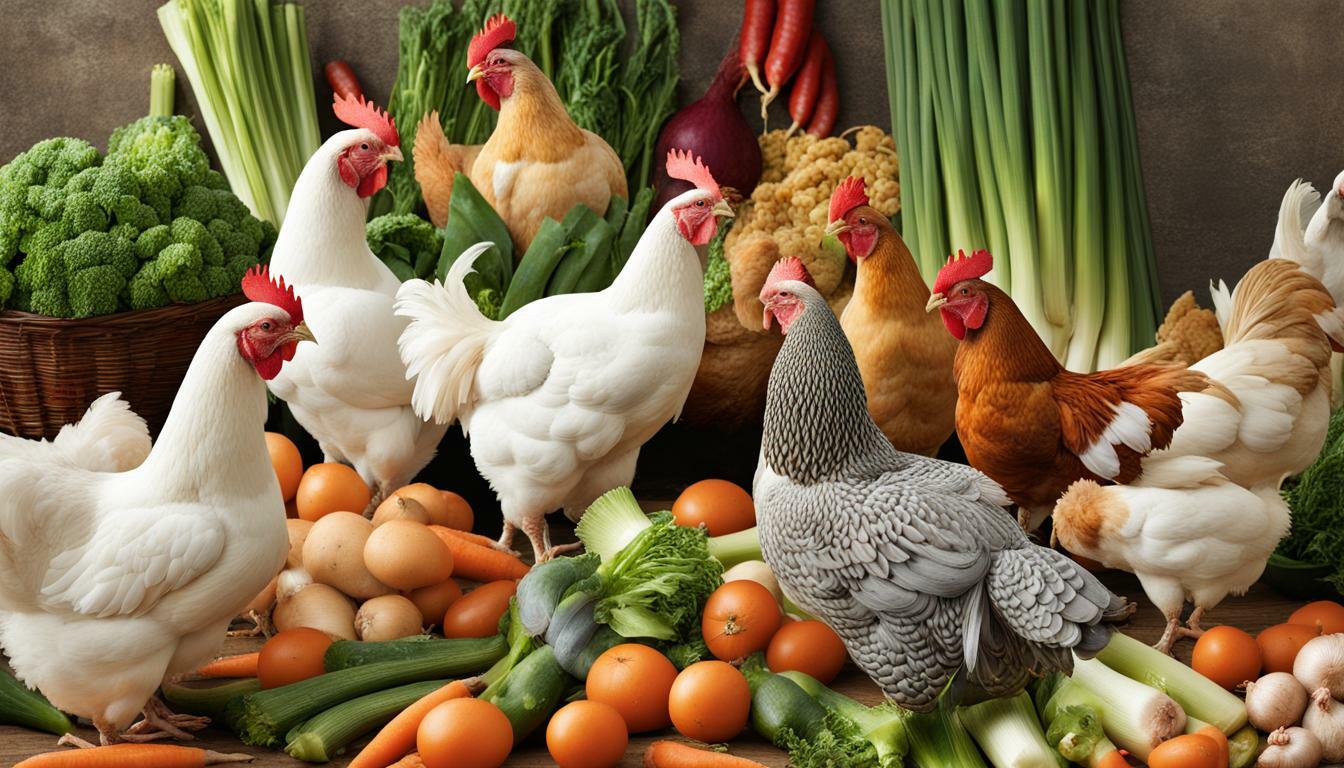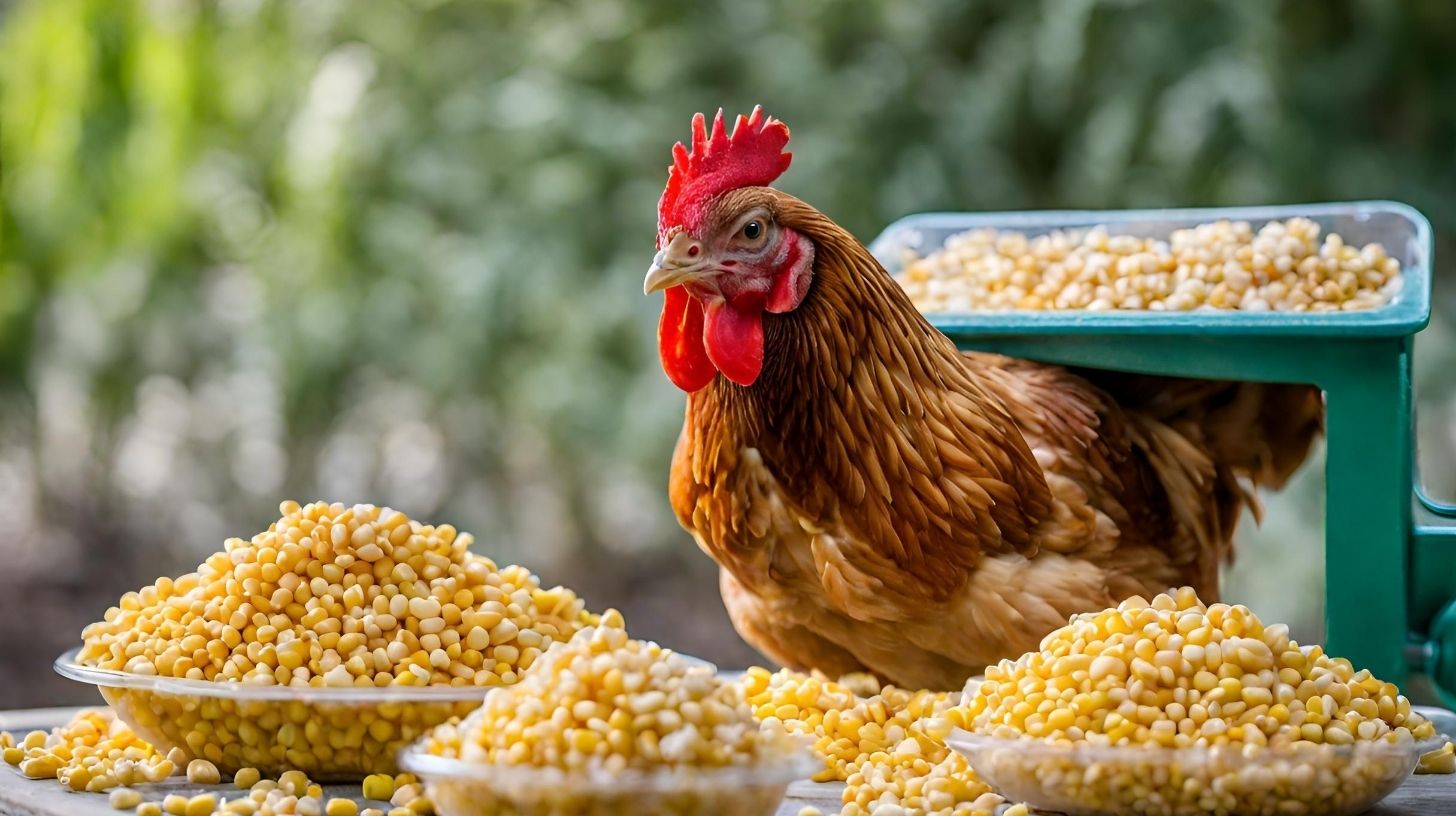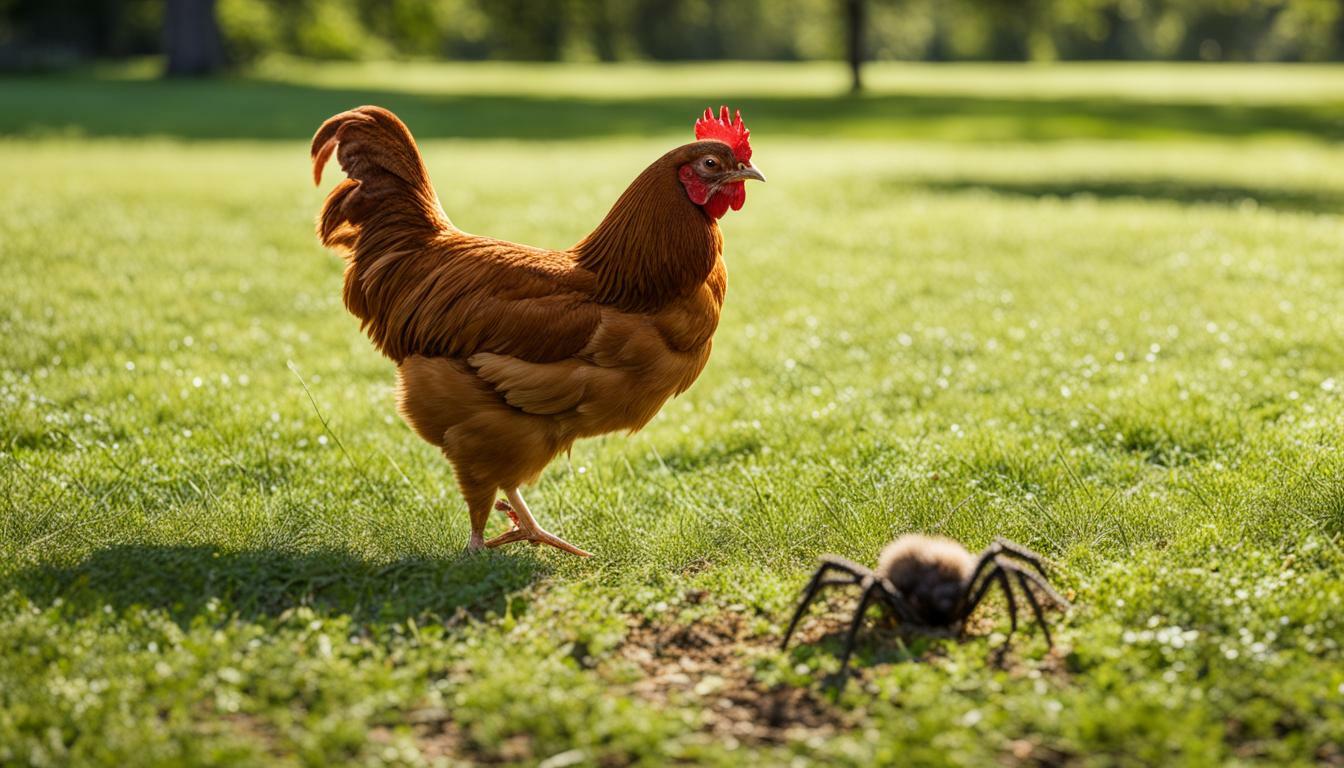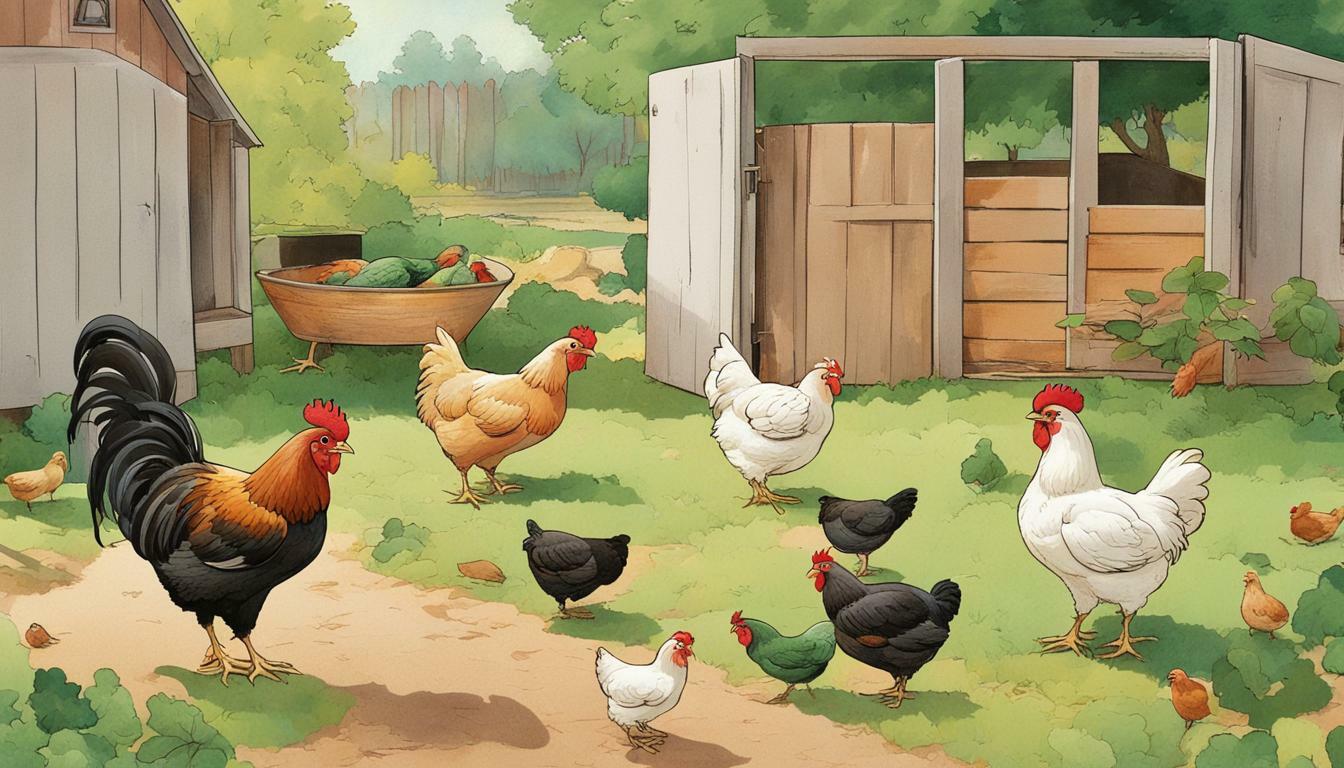Can Chickens Eat Leeks? Uncovering the Facts!

Table of content:
Leeks are a tasty and nutritious vegetable that can be a great addition to your backyard chickens’ diet. As with any new food for chickens, it’s important to introduce leeks slowly and in moderation. Read on to learn more about whether chickens can eat leeks safely and how to feed them properly.
Are Leeks Safe for Chickens to Eat?
Many leafy greens and vegetables are perfectly safe and even beneficial for chickens to eat. Leeks are part of the allium family, along with onions, garlic, chives, and shallots. Alliums contain compounds that can be toxic to chickens and other livestock in large quantities.
However, leeks contain lower concentrations of these compounds compared to onions and garlic. This means leeks are generally recognized as safe for chickens to eat in moderation. Small amounts of leek greens or chopped leeks provide healthy nutrients and create variety in your flock’s diet.
Benefits of Feeding Chickens Leeks
Leeks offer lots of nutritional value for chickens. Some of the benefits include:
- Vitamin A – Supports vision, growth, egg production, and immune function. The green tops are particularly high in this vitamin.
- Vitamin K – Essential for blood clotting and bone health. The bulb and greens both provide vitamin K.
- Antioxidants – Leeks contain flavonoid antioxidants that reduce inflammation and oxidative damage.
- Prebiotics – The fiber in leeks promotes growth of healthy gut bacteria. This supports digestion and immunity.
- Omega-3 Fatty Acids – Small amounts of anti-inflammatory omega-3s occur naturally in leeks.
Feeding leeks in moderation 1-2 times per week provides chickens with these valuable nutrients.
How Many Leeks Can Chickens Eat?
Since leeks are part of the allium family, it’s best to limit how much you feed chickens at one time. Follow these guidelines:
- Start with very small amounts – a few thin slices or chopped leek greens – once or twice a week.
- For full-sized leeks, limit feeding to 1-2 times per week. Do not exceed 1/4 leek bulb or 1/2 cup chopped leek greens per standard-sized chicken.
- For baby or miniature leeks, you can feed a bit more – up to 1/2 bulb or 1 cup greens per chicken.
- Avoid feeding leeks daily or in excess. Feed other leafy greens like kale or spinach on days when leeks are not provided.
- Remove any uneaten leeks within 1-2 hours to prevent spoilage.
Following these tips will allow chickens to gain benefits from leeks while avoiding potential toxicity. Monitor your flock closely when introducing new foods.
How to Prepare and Feed Leeks to Chickens
Leeks should always be chopped or thinly sliced before feeding to chickens. Whole leeks are difficult for chickens to digest. Here are some feeding tips:
- Wash leeks thoroughly to remove dirt. Chop the white bulb and green leaves into small, chicken-sized pieces.
- Lightly steam or blanch leeks for 1-2 minutes. This softens them up for easier eating. Allow to cool before feeding out.
- Mix a small amount of chopped leeks into chickens’ regular feed. This helps them develop a taste for this new food.
- Scatter leek pieces in leaf litter or hide inside suet feeders or foraging toys. This satisfies chickens’ natural need to scratch and search for food.
- Add leeks to homemade treat mixes along with oats, corn, greens, and chicken-safe fruits.
- Offer leeks as part of a wholesome forage mix of garden produce and weeds. Provide fresh water at all times.
Follow basic biosecurity practices when feeding garden vegetables. Wash produce and equipment to prevent potential spread of pathogens.
What Other Vegetables Can Chickens Eat Safely?
In addition to leeks in moderation, chickens enjoy a wide variety of garden vegetables:
- Leafy greens – kale, spinach, lettuce, bok choy, swiss chard, beet greens
- Brussels sprouts and broccoli (cooked)
- Carrots and sweet potatoes
- Pumpkins and squash
- Fresh herbs – parsley, cilantro, basil
- Tomato and bell pepper (ripe, diced)
There are also a number of common vegetables that should be avoided or limited due to toxicity concerns:
- Raw green potato peels
- Dried beans or peas
- Rhubarb leaves
- Eggplant leaves and skin
- Onions
When trying new vegetables, always start with small test portions to observe your flock’s reaction. Increase gradually while monitoring for adverse effects. Provide a balanced base diet along with supplemental vegetables for best nutrition.
Signs of Leek Toxicity in Chickens
As with any food, chickens can experience adverse reactions if they eat excessive amounts of leeks. Leek toxicity is not common but important to watch for. Signs may include:
- Decreased appetite or droopy, lethargic appearance
- Weight loss
- Diarrhea or smelly droppings
- Discolored yolks
- Respiratory distress – coughing, sneezing, watery eyes
If you observe any of these symptoms after feeding leeks, immediately remove access to leeks and contact your veterinarian. Supportive care such as hydration and probiotics may be recommended. In most cases, chickens recover fully with proper treatment and avoidance of leeks in the future.
FAQs About Feeding Leeks to Backyard Chickens
Can baby chicks eat leeks?
Leeks should not be fed to chicks under 16 weeks old. Chicks do not tolerate alliums well. Wait until pullets are mature before offering small test portions.
What part of the leek can chickens eat?
Both the white bulb and the green leaves are edible. The greens contain more vitamins. Chop all parts into bite-size pieces before feeding.
Do leeks affect chicken egg flavor?
In moderation, leeks should not significantly impact egg flavor. Excessive feeding over prolonged periods may result in a change. As always, provide a balanced diet.
Can leeks replace chicken’s regular feed?
No, leeks should only supplement a complete feed ration designed for the specific age and type of chicken. Vegetables do not provide full nutrition.
Are wild leeks safe for chickens?
Yes, wild leeks found growing in nature can be fed just like cultivated leeks. Clean fully and chop before feeding in small amounts.
Conclusion
Leeks can be a nutritious treat for backyard chickens when fed properly. Introduce them slowly, in moderation, and with close observation. Avoid overfeeding to prevent toxicity. Combine leeks with other healthy vegetables and greens to provide variety and key nutrients. Following these tips will keep your flock happy while avoiding excess. Be sure to provide layer feed, fresh water, and opportunities for exercise at all times. With some caution, leeks can be a great addition to your chickens’ menus.
Welcome. I’m Adreena Shanum, the proud owner of this website, and I am incredibly passionate about animals, especially poultry. I founded adreenapets.com as a labor of love, stemming from my desire to share my knowledge and experiences with poultry enthusiasts worldwide.




